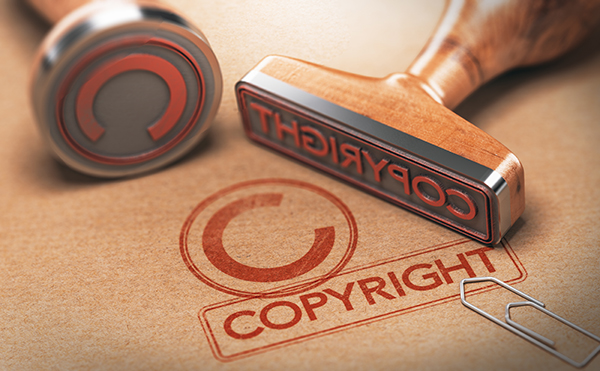The following is informational only and does not constitute legal advice. If you have a question or concern about copyrighting your work, please contact the U.S. Copyright Office or a copyright attorney for assistance.
According to the Copyright Act of 1976, a work is automatically copyrighted once it’s created. Filing with the U.S. Copyright Office, however, creates a public record of your copyright and would be required in a court of law if you were to discover that your legal rights have been violated.
Traditional publishers submit copyrights for works they publish, but it is the responsibility of an independent author to register with the copyright office, if they choose to have this added protection. According to the U.S. Copyright Office, a copyright filed within five years of a work’s publication is considered prima facie evidence in a court of law if your legal ownership of your work comes into question.
Registering a work with the U.S. Copyright Office is voluntary and comes with fees. You’ll need at least one copy of your published work (depending on the type of copyright, you might need two copies), a completed copyright application, and a nonrefundable fee for a full registration, which is different from preregistration. As of this writing, there’s no deadline clearly indicated on the U.S. Copyright Office website after publication to copyright a work.
The fees for a basic copyright, as of this writing, in electronic form are between $35 and $55, while an on-paper registration is $85.
Some authors feel more confident employing a copyright lawyer to help them. Though the idea of copyrighting your work might seem daunting, the process is relatively simple, so you may find yourself capable of undertaking the process alone. Do what works best for you. You can follow the instructions below or check out this helpful YouTube video we recently came across: https://www.youtube.com/watch?v=foghfEKXz7o.
How to File for a Copyright
To file online, go to Copyright.gov and click the Registration menu, then select “Register Your Work: Registration Portal.” The page that follows will offer options for the types of media that can be copyrighted, as well as a link to log in to the Electronic Copyright Office (eCO). Make sure you read this page before you create an account.
You may also want to visit the U.S. Copyright Office FAQ page (https://www.copyright.gov/help/faq/), which contains links to FAQs including what file types are acceptable as well as a PDF that walks you through the steps you’ll need to follow once you’re ready to register your work. As mentioned above, your work needs to be finished and published for a full registration. Processing times can vary for published work, so don’t look for an immediate response to your application.
You can begin the copyrighting process before you publish by preregistering your work. Be aware, however, that according to Copyright.gov, preregistration is not the same as fully registering your work, so you’ll need to complete that registration once your work is published.
To preregister, your work must be in the process of being prepared for distribution in either digital or physical format. There must also be a precedent of the type of work suggesting a concern of infringement is warranted. Since literary works being prepared for publishing in book form fall under all these headings, you can preregister them. You’ll need to provide an application for copyright and a nonrefundable filing fee ($140, as of this writing). You can learn more about the requirements and steps of the preregistration process here: https://eservice.eco.loc.gov/eService_enu/start.swe?SWECmd=Start

Recent Comments